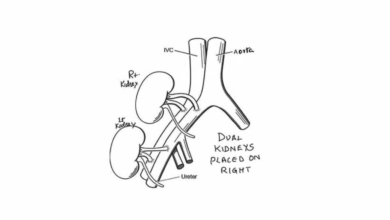US woman sues L’Oreal for selling cancer-causing products
A few days after a study showed that chemical hair-straightening tools caused a rare type of cancer, a US woman has brought a lawsuit against L’Oreal, a French cosmetic giant for having contracted uterine cancer.
Reportedly, Jenny Mitchell filed a civil lawsuit saying she had been using L’Oreal’s chemical hair straightening products for more than two decades which caused uterine cancer and forced her to undergo a full hysterectomy.
Under a hysterectomy, a woman’s womb (uterus) is removed which means they cannot get pregnant after the operation.
Ben Crump, an attorney representing Mitchell said his client sought damages from the French company, among others. Crump also added that Black women were particularly made the target of such dangerous products.
“Black women have long been the victims of dangerous products specifically marketed to them,” said Crump.
“We will likely discover that Ms Mitchell’s tragic case is one of countless cases in which companies aggressively misled Black women to increase their profits.”
Earlier, Black women across the US had also blamed Johnson & Johnson for selling talc-based powder that contained cancer-causing material like asbestos and was particularly marketed towards the dark-skinned demography of consumers.
As reported by WION, in a new study published in the Journal of the National Cancer Institute, it was shown that women who use chemical hair-straightening tools frequently are at a greater risk of a comparatively rare type of cancer.
The study incorporated data from almost 34,000 women in the United States over a period of around 11 years (10.9 to be exact). Participants were aged between 35 to 74 years.
“We estimated that 1.64 per cent of women who never used hair straighteners would go on to develop uterine cancer by the age of 70, but for frequent users, that risk goes up to 4.05 per cent,” said Alexandra White of the US National Institute of Environmental Health Safety (NIEHS) and the lead author of the study.
She added that it is important to put this information into context given that “Uterine cancer is a relatively rare type of cancer.”
The study did not find any racial linkages, but due to the fact that black women are more frequent users of these products and tend to start using them at a younger age, the researchers stress the importance the findings could have for them.
(With inputs from agencies)








